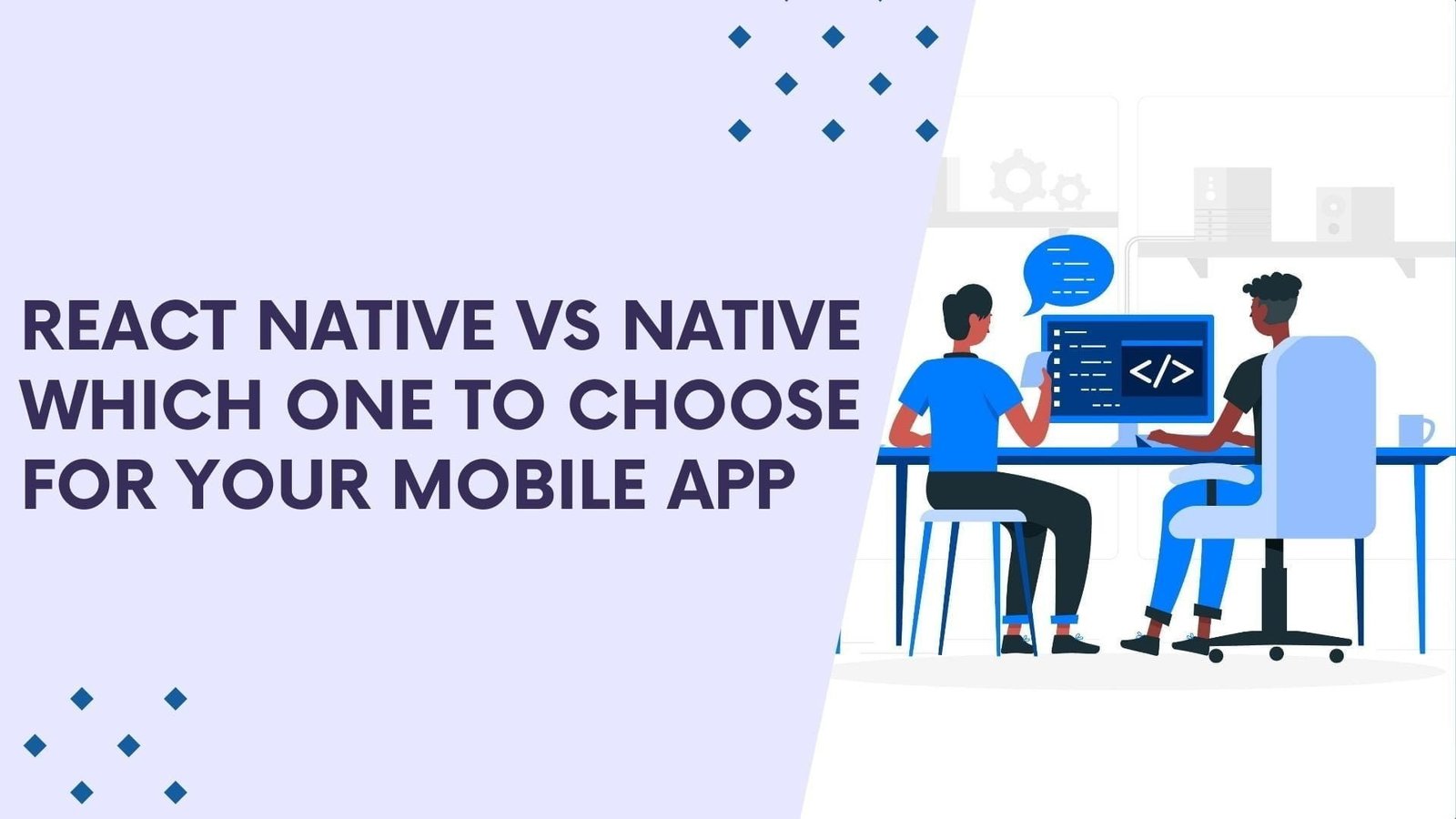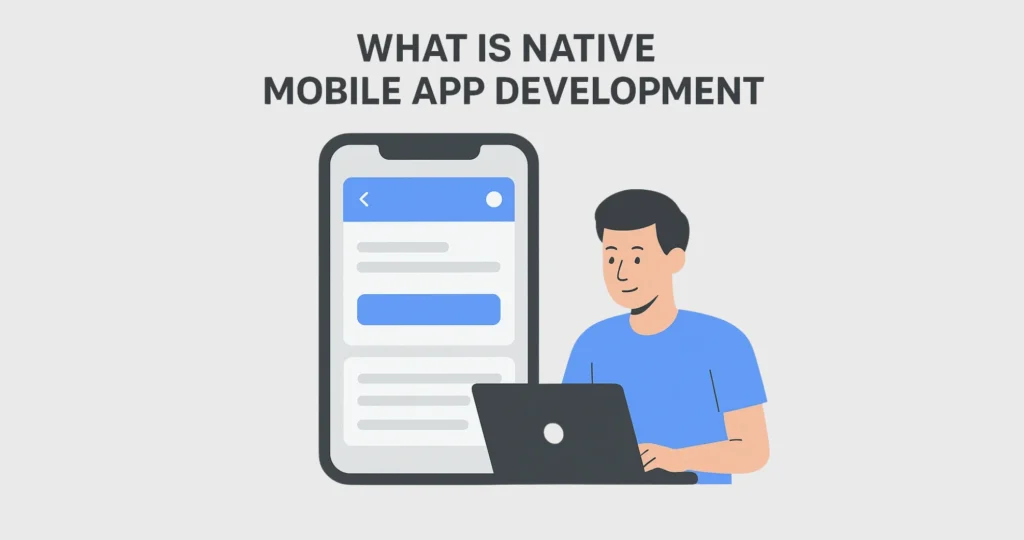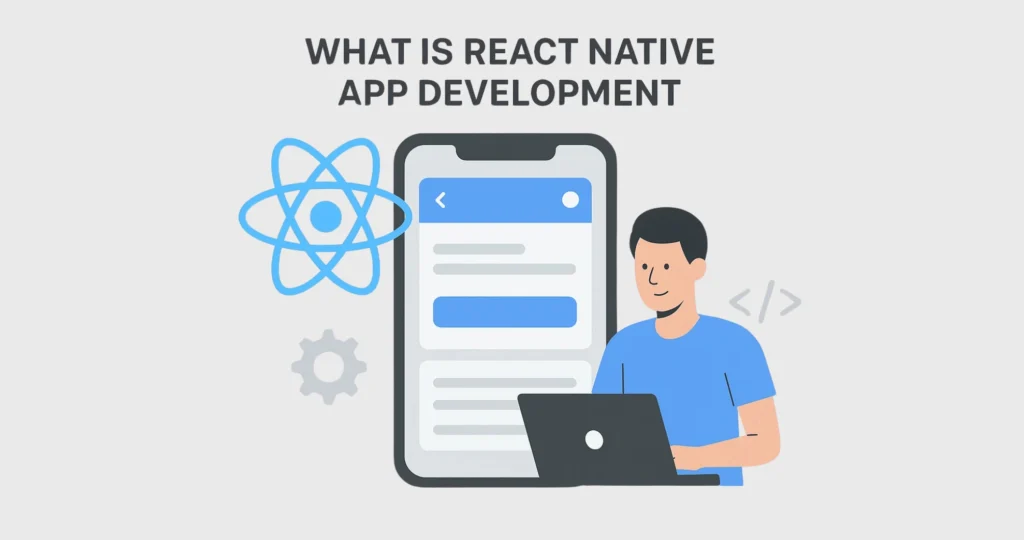React Native vs Native:…
React Native vs Native: Which One To Choose For Your Mobile App Home > Insights > Mobile Development Table of Content Key Factors Summary Why React Native is a Better…
Home > Insights > Mobile Development

React Native vs. Native: Factors to Consider for Deciding the Right Mobile App Development Approach
React Native vs Native Development: Key Factors
When comparing Native vs. React Native, development time is crucial. In Native development, separate codebases for Android and iOS are required, necessitating two distinct teams. This increases both effort and time. Conversely, React Native allows a single codebase for both platforms, leveraging hot reloading for faster deployment, thus reducing overall development time.
Winner: React Native for quicker and more cost-effective market entry.
React Native is typically 30%-35% cheaper than Native development due to the shared codebase and reduced team requirements.
Winner: React Native if budget constraints are a priority.
Native development excels in creating complex, high-quality user interfaces. Each screen is individually designed for the respective platform, ensuring a superior UI/UX experience. React Native can struggle with complex UIs and achieving consistent standards across both platforms.
Winner: Native for exceptional UI/UX.
React Native offers extensive opportunities for handling increased workload and rolling out functionality updates efficiently.
Winner: React Native for scalability.
Native apps, built with Swift, Java, or Kotlin, are optimized for advanced features and heavy computations. React Native, based on JavaScript, faces limitations with asynchronous tasks and complex manipulations.
Winner: Native for superior performance.
Native languages like Kotlin, Java, and Swift are strongly typed and easier to learn with robust documentation. JavaScript, while easier initially, has flaws and less comprehensive documentation.
Winner: Native for a more reliable programming experience.
Native platforms, supported by Google and Apple, ensure timely updates and long-term support. React Native’s update cycle can lag behind, creating potential issues for long-term viability.
Winner: Native for long-term reliability.
Native apps interact seamlessly with other native apps, while React Native relies on third-party libraries, limiting data access and interactivity.
Winner: Native for better app interactivity.
Native development has direct access to all APIs, whereas React Native often requires building connection layers for complex APIs.
Winner: Native for comprehensive API support.
React Native needs native module support for certain features, requiring knowledge of native languages. Native development faces no such constraints.
Winner: Native for ease of accessing native features.
Native development languages (Java, Kotlin, Swift) offer more robust security compared to JavaScript-based React Native, which relies on third-party libraries, introducing potential vulnerabilities.
Winner: Native for better security.
React Native simplifies maintenance by addressing bugs on a single codebase. Native development requires separate attention to bugs on each platform.
Winner: React Native for easier maintenance.
Summary
Choose Native Development When:
Choose React Native When:
Why React Native is a Better Option for Startups
Startup Challenges Solved by React Native:
Brands Using React Native
Conclusion
React Native is ideal for startups and projects with budget constraints or a need for rapid market entry. Native development remains the best choice for complex, performance-intensive applications requiring high security and superior UI/UX. The choice between React Native and Native ultimately depends on the specific requirements and goals of your mobile app project.
RELATED SERVICE
Know More about Mobile App Development Services

React Native vs Native: Which One To Choose For Your Mobile App Home > Insights > Mobile Development Table of...

React Native vs Flutter vs MAUI: Which Framework to Choose for Your Next Mobile App Development? Home > Insights >...

Cross Platform Mobile App Development – Pros and Cons. Home > Insights > Mobile Development Cross Platform Mobile App Development...

When planning a new mobile application, one of the first questions businesses face is: React Native or Native? The choice determines cost, speed, performance, and long-term scalability.
With the rise of React Native app development, many companies are moving away from traditional native app development to build cross-platform solutions. But which one is the right fit for your project?
This guide explores the pros, cons, and use cases of both React Native mobile app development and native mobile app development to help you make the right decision.

Native app development involves building apps specifically for a single platform—Swift/Objective-C for iOS and Java/Kotlin for Android.
Key features of native mobile application development:
While native mobile app development ensures high performance, it comes at a higher cost and longer development time since separate codebases are required.

React Native, created by Meta (Facebook), is a popular open-source framework that uses JavaScript and React to build cross-platform apps.
Benefits of React Native mobile development include:
Many businesses hire React Native app development companies or freelance React Native developers to create React Native apps quickly and cost-effectively.
| Factor | React Native App Development | Native Mobile App Development | Winner |
|---|---|---|---|
| Development Time | One codebase for both iOS & Android = faster time-to-market. | Separate teams and codebases for iOS & Android = longer timelines. | React Native |
| Cost | 30–40% cheaper due to shared code and smaller team. | Higher cost since two specialized teams are required. | React Native |
| UI/UX Design | Good UI/UX but struggles with complex, graphics-heavy apps. | Best for complex, high-quality, platform-optimized interfaces. | Native |
| Performance | Excellent for most apps but not ideal for heavy computations. | Optimized for device hardware and operating system = superior performance. | Native |
| Scalability | Easy to scale with reusable components and shared architecture. | Strong scalability but requires maintaining two separate apps. | React Native |
| Security | Dependent on JavaScript and third-party libraries → potential vulnerabilities. | Stronger security with Swift, Kotlin, and Java. | Native |
For startups with limited budgets, choosing React Native app development services makes sense:
However, if you’re building a complex app (e.g., fintech, AR/VR, or IoT), native application development is often the smarter choice.
Several top companies use React Native mobile development:
These examples show how React Native application development works at scale.
The React Native vs Native debate boils down to your app’s needs:
By partnering with trusted React Native app development companies or a reliable native app development company, you can align your project goals with the right development approach.
RELATED SERVICE
Know More about Mobile App Development Services
React Native vs Native: Which One To Choose For Your Mobile App Home > Insights > Mobile Development Table of Content Key Factors Summary Why React Native is a Better…
React Native vs Flutter vs MAUI: Which Framework to Choose for Your Next Mobile App Development? Home > Insights > Mobile Development Table of Content Introduction A Short Introduction to…
Cross Platform Mobile App Development – Pros and Cons. Home > Insights > Mobile Development Cross Platform Mobile App Development Pros and Cons. Home > Insights > Mobile App Development …